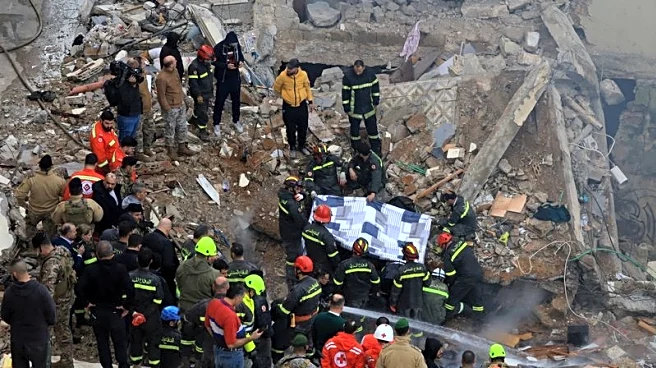What's Happening?
Admiral Alvin Holsey, who was overseeing U.S. Southern Command, has stepped down after a year in the position. His departure comes amid ongoing military operations targeting small boats off the Venezuelan coast, which the Pentagon claims are used by drug
traffickers. Secretary of Defense Pete Hegseth announced Holsey's retirement, praising his commitment to the mission and the nation. The decision is unusual, as commanders typically serve three-year terms, and it occurs during a significant military buildup in the region. Holsey's resignation follows concerns about the legality of the operations, which have involved lethal strikes on civilian vessels.
Why It's Important?
The resignation of Admiral Holsey highlights potential legal and ethical concerns surrounding U.S. military operations in the Caribbean. The strikes on civilian vessels have been criticized as potentially illegal under U.S. and international law, raising questions about due process and the role of the military in law enforcement. This development could impact U.S. relations with South American countries and influence future military strategies in the region. The situation underscores the tension between national security objectives and adherence to legal standards, affecting both military personnel and diplomatic relations.
What's Next?
Following Holsey's resignation, there may be increased scrutiny of U.S. military operations in the Caribbean, particularly regarding their legality and effectiveness. The Pentagon may face pressure to reassess its strategies and ensure compliance with international law. Additionally, the U.S. government might need to address diplomatic concerns from South American nations affected by these operations. The appointment of a new commander for U.S. Southern Command could lead to changes in policy and operational focus, potentially impacting future military engagements in the region.
Beyond the Headlines
The controversy surrounding the Venezuelan boat strikes raises broader questions about the militarization of drug enforcement and the ethical implications of using lethal force in such operations. It also highlights the challenges of balancing national security interests with human rights and legal standards. The situation may prompt discussions on the appropriate role of the military in combating drug trafficking and the need for collaboration with law enforcement agencies to ensure due process.

















